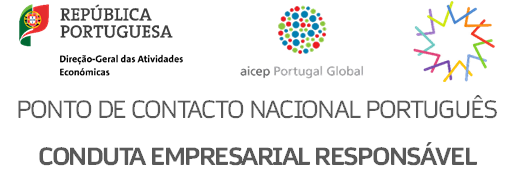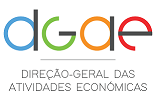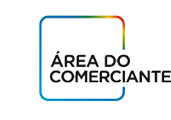

Promotional Plan 2023-2024
Introduction
1. The Portuguese National Contact Point for the OECD Guidelines for Multinational Enterprises (NCP PT) is coordinated by the Directorate-General for Economic Activities (DGAE) together with the Portuguese Agency for Investment and Foreign Trade (aicep Portugal Global).
2. Since they were established in 1984, the NCPs have been responsible for promoting the OECD Guidelines for Multinational Enterprises (the Guidelines). The promotion of the Guidelines, together with the promotion of instruments to deal with topics arising from the implementation of the Guidelines, comprises the mandate of the NCPs.
3. Promotional activity is essential for the effectiveness and implementation of the Guidelines and Due Diligence Guidance, which contributes to the functional equivalence of the NCP, allowing it to be more visible, accessible and transparent.
4. According to the Guidelines, NCPs should promote and make the Guidelines available in appropriate channels and in national languages to raise awareness of the Guidelines and their implementation procedures. NCPs shall further promote the Guidelines through processes of cooperation with the business community, workers' organizations, other non-governmental organizations and with interested parties, as appropriate. The current wording of the Guidelines does not define minimum promotion requirements or types of promotional activities that NCPs should be undertake.
Framework
5. The NCP PT has not registered any specific instances since 2004. This scenario is indicative of the need to reinforce the promotion of the NCP PT, ensuring that the business manufacturer and workers' organizations are aware of the Guidelines and the role that the NCP plays as a non-judicial platform of mediation and conciliation for the resolution of complaints about alleged non-compliance with the Guidelines identified in the companies' activities.
6. In 2021 and 2022, promotion activities were carried out by the NCP PT team, namely:
a. Participation in “Portugal Exportador” event, which took place on November 23, 2022, at the Lisbon Congress Centre. This event aimed to accelerate companies' internationalization strategies, being focused on SMEs and allowing opportunity for business development and networking. In this context, DGAE developed a video, presented at the aicep Portugal Global stand, transmitting relevant information on the OECD Guidelines for Multinational Enterprises, as well as on the proposal for a Directive on Corporate Sustainability Due Diligence, two interconnected matters within the scope of Responsible Business Conduct.
b. NCP PT, through DGAE, participated in the panel “Public-Private Action to Integrity” at the International Anti-Corruption Congress, organized by the Faculty of Law of Universidade Lusíada (Porto), on May 4, 2022. NCP PT intervention focused on the definition of Responsible Business Conduct (RBC), identified the main international instruments relevant to RBC and, in this context, highlighted the leading role of the Guidelines, presenting in greater detail its Chapter VII.
c. During 2021, DGAE implemented updates on the dedicated webpage of the NCP, which included the publication of online content (on the DGAE’s website, LinkedIn and on the Youtube channel dedicated to NCP PT) and the following documentation:
i. Requerimento Inicial para Contacto com o PCN (Form in PT)
ii. Information in English regarding the PT NCP (Brochure in EN)
iii. Procedural Guidance for the Treatment of Specific Instances under the OECD Guidelines for Multinational Enterprises (Procedural Guidance in EN)
iv. Initial request for contact with the PT NCP (Form in EN)
d. In March 2022, AICEP launched a publication on NCP PT activity in Revista Portugalglobal.
7. Recognizing that NCP PT technical team is facing challenges inherent to the operation with financial (lack of an annual budget dedicated to the NCP) and human constraints (current NCP PT team does not respond to the requirement regarding the allocation of the equivalent of 2 human resources full-time), it is considered that the elaboration of a communication plan is a crucial step for leveraging the activity of the NCP PT, allowing the more effective and targeted development of promotion initiatives.
8. Although it is recognized that the NCP should organize on-site and decentralized events, which guarantee greater proximity to different local communities and which enhance opportunities for cooperation within the scope of the implementation of the Guidelines, the constraints identified above restrict the typology and scope of the promotion activities that can be carried out. In this sense, NCP PT will give priority to the organization of online events which allow faster coordination and less allocation of financial resources. Promotional materials will also be developed in a virtual format, with the aim of facilitating rapid dissemination among interested interlocutors.
9. The contents of this Communication Plan is based on the note “Developing Promotional Plans for NCPs”, prepared by the OECD secretariat and presented at the NCP Network meeting in June 2022. This note presents a set of considerations that are relevant to the construction of a Promotional Plan for NCPs and highlights factors to be considered in planning promotional activities. The writing of this plan also takes into account the guidelines shared in the brochure “COMMUNICATIONS BOOKLET | National Contact Points for Responsible Business Conduct”, of June 2019, prepared by the OECD Secretariat.
10. This plan, contextualized through the points above, also includes two tables: 1) The first identifies all the activities that are expected to be carried out over the period 2023-2024 – hereinafter referred to as the “Activity Identification” Table; 2) The second is a schedule that marks the period foreseen for the development of the activities identified in the previous table, hereinafter referred to as the “Activity Timetable”.
11. The “Activity Identification” table is composed of the following fields:
a. ID: Displays the activity identification number.
b. Topics: Referring to the topics that will be addressed within the scope of this activity (eg.: Introduction to the Guidelines/to PT NCP/to Sectoral Due Diligence Guides, priority RBC issues, emerging RBC issues, among others).
c. Target Audience: Refers to the audiences to whom the activity is directed (eg.: Companies, Unions, NGOs, Academia, Government, among others). Depending on the topic, there may be multiple audiences covered in an activity.
d. Format: Referring to the type of activity, namely Events (Live – location, Hybrid – location, Online), Promotional Materials (Print, Social Networks, Website).
e. Partners/Multipliers: Business Multipliers, Stakeholders/Academy, Government, Journalists - Are there organizations that can multiply the efforts of the NCP? (eg.: disseminating information, organizing events).
f. Hours of work: Referring to the number of hours of work spent by NCP PT members to carry out the activity.
12. Carrying out the identified activities presupposes the collaboration of the various stakeholders identified in the Partners column, who may play the role of multiplier/disseminator or, due to their skills and/or attributions, support the NCP in the development of the activity. In both cases, partners are seen as crucial elements in leveraging the NCP's promotional activities.
13. The calendar defined in the schedule may change due to unplanned activities that fall within the sphere of competence of the human resources assigned to the NCP team.












